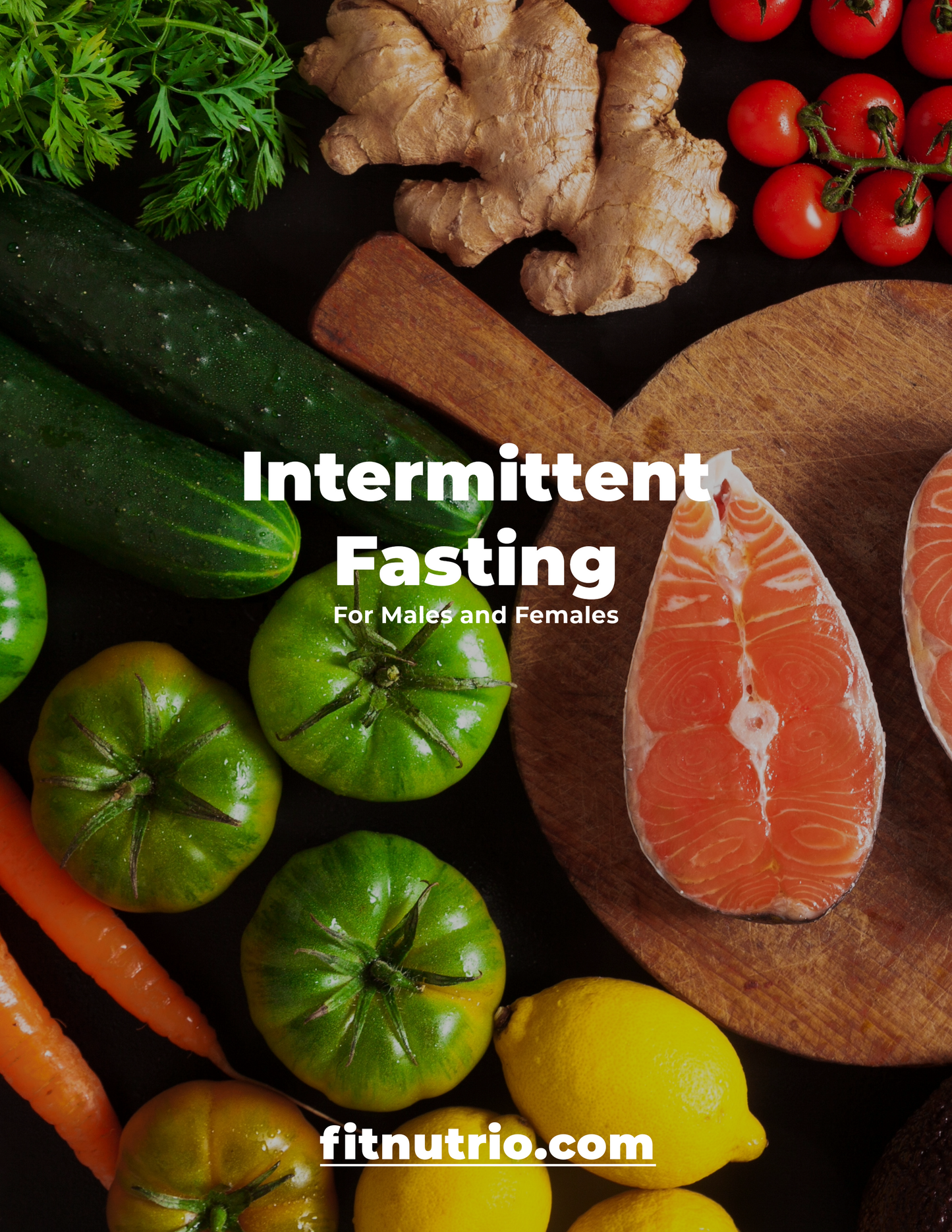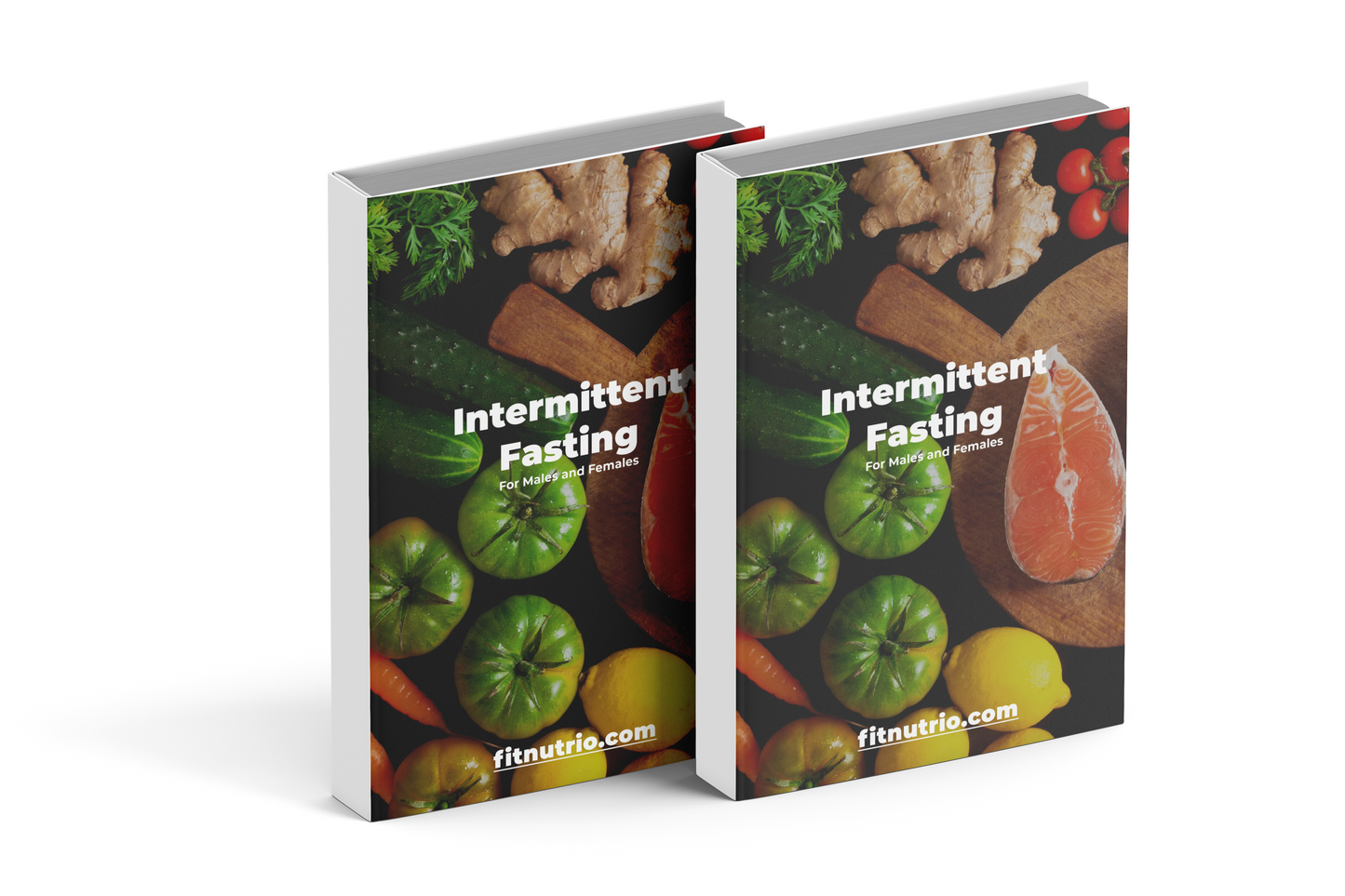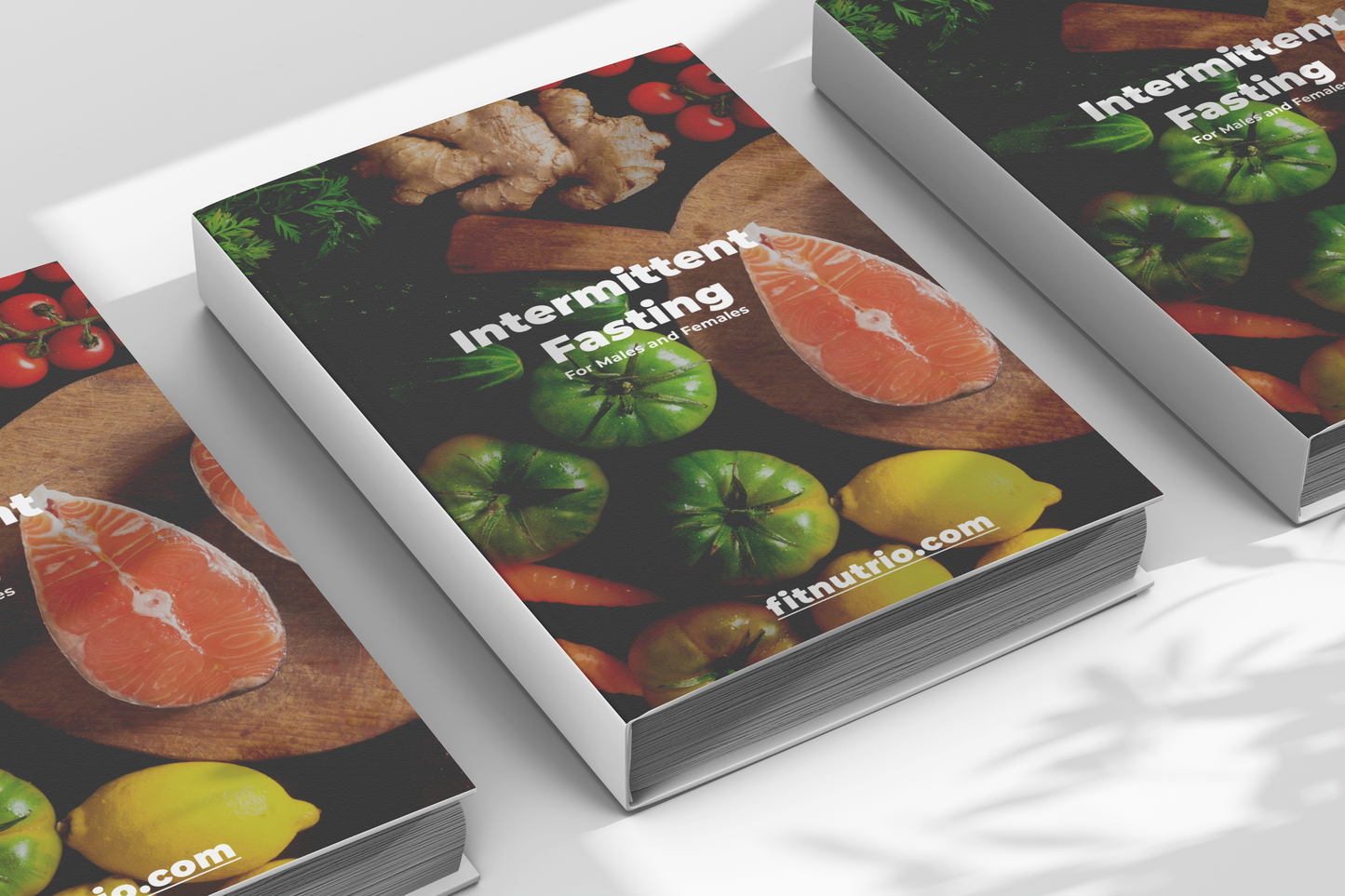OUR CUSTOMERS SPEAK FOR THEMSELVES
Intermittent fasting has completely transformed my energy levels and body composition
This plan made fasting easy to follow, and the results have been incredible!
I finally broke through my weight loss plateau thanks to this fasting guide
Less bloating, more energy, and better focus—I can’t imagine eating any other way!
This program helped me lose weight without feeling restricted or deprived
Fasting has improved my digestion, sleep, and overall well-being!
Intermittent fasting has completely transformed my energy levels and body composition
This plan made fasting easy to follow, and the results have been incredible!
I finally broke through my weight loss plateau thanks to this fasting guide
Less bloating, more energy, and better focus—I can’t imagine eating any other way!
This program helped me lose weight without feeling restricted or deprived
Fasting has improved my digestion, sleep, and overall well-being!
Intermittent fasting has completely transformed my energy levels and body composition
This plan made fasting easy to follow, and the results have been incredible!
I finally broke through my weight loss plateau thanks to this fasting guide
Less bloating, more energy, and better focus—I can’t imagine eating any other way!
This program helped me lose weight without feeling restricted or deprived
Fasting has improved my digestion, sleep, and overall well-being!
Intermittent fasting has completely transformed my energy levels and body composition
This plan made fasting easy to follow, and the results have been incredible!
I finally broke through my weight loss plateau thanks to this fasting guide
Less bloating, more energy, and better focus—I can’t imagine eating any other way!
This program helped me lose weight without feeling restricted or deprived
Fasting has improved my digestion, sleep, and overall well-being!
Intermittent fasting has completely transformed my energy levels and body composition
This plan made fasting easy to follow, and the results have been incredible!
I finally broke through my weight loss plateau thanks to this fasting guide
Less bloating, more energy, and better focus—I can’t imagine eating any other way!
This program helped me lose weight without feeling restricted or deprived
Fasting has improved my digestion, sleep, and overall well-being!
Intermittent fasting has completely transformed my energy levels and body composition
This plan made fasting easy to follow, and the results have been incredible!
I finally broke through my weight loss plateau thanks to this fasting guide
Less bloating, more energy, and better focus—I can’t imagine eating any other way!
This program helped me lose weight without feeling restricted or deprived
Fasting has improved my digestion, sleep, and overall well-being!
The best part? I eat delicious meals and still see results
I never thought skipping breakfast could make me feel this good!
Clearer skin, better focus, and steady weight loss—this plan works
This guide simplified intermittent fasting and made it easy to stick with!
My cravings have disappeared, and I finally feel in control of my eating habits
I love how flexible this fasting plan is—it fits perfectly into my lifestyle!
The best part? I eat delicious meals and still see results
I never thought skipping breakfast could make me feel this good!
Clearer skin, better focus, and steady weight loss—this plan works
This guide simplified intermittent fasting and made it easy to stick with!
My cravings have disappeared, and I finally feel in control of my eating habits
I love how flexible this fasting plan is—it fits perfectly into my lifestyle!
The best part? I eat delicious meals and still see results
I never thought skipping breakfast could make me feel this good!
Clearer skin, better focus, and steady weight loss—this plan works
This guide simplified intermittent fasting and made it easy to stick with!
My cravings have disappeared, and I finally feel in control of my eating habits
I love how flexible this fasting plan is—it fits perfectly into my lifestyle!
The best part? I eat delicious meals and still see results
I never thought skipping breakfast could make me feel this good!
Clearer skin, better focus, and steady weight loss—this plan works
This guide simplified intermittent fasting and made it easy to stick with!
My cravings have disappeared, and I finally feel in control of my eating habits
I love how flexible this fasting plan is—it fits perfectly into my lifestyle!
The best part? I eat delicious meals and still see results
I never thought skipping breakfast could make me feel this good!
Clearer skin, better focus, and steady weight loss—this plan works
This guide simplified intermittent fasting and made it easy to stick with!
My cravings have disappeared, and I finally feel in control of my eating habits
I love how flexible this fasting plan is—it fits perfectly into my lifestyle!
The best part? I eat delicious meals and still see results
I never thought skipping breakfast could make me feel this good!
Clearer skin, better focus, and steady weight loss—this plan works
This guide simplified intermittent fasting and made it easy to stick with!
My cravings have disappeared, and I finally feel in control of my eating habits
I love how flexible this fasting plan is—it fits perfectly into my lifestyle!



OUR CUSTOMERS LOVE THE PRODUCT
Within weeks, I felt lighter, more energized, and more in tune with my body!
No more constant snacking—I eat fewer meals and feel better than ever
Intermittent fasting has been a game-changer for my weight loss journey!
I used to struggle with mindless eating, but this plan helped me reset my habits
This guide answered all my questions and made fasting super simple!
I’m burning fat, building muscle, and feeling stronger every day
Within weeks, I felt lighter, more energized, and more in tune with my body!
No more constant snacking—I eat fewer meals and feel better than ever
Intermittent fasting has been a game-changer for my weight loss journey!
I used to struggle with mindless eating, but this plan helped me reset my habits
This guide answered all my questions and made fasting super simple!
I’m burning fat, building muscle, and feeling stronger every day
Within weeks, I felt lighter, more energized, and more in tune with my body!
No more constant snacking—I eat fewer meals and feel better than ever
Intermittent fasting has been a game-changer for my weight loss journey!
I used to struggle with mindless eating, but this plan helped me reset my habits
This guide answered all my questions and made fasting super simple!
I’m burning fat, building muscle, and feeling stronger every day
Within weeks, I felt lighter, more energized, and more in tune with my body!
No more constant snacking—I eat fewer meals and feel better than ever
Intermittent fasting has been a game-changer for my weight loss journey!
I used to struggle with mindless eating, but this plan helped me reset my habits
This guide answered all my questions and made fasting super simple!
I’m burning fat, building muscle, and feeling stronger every day
Within weeks, I felt lighter, more energized, and more in tune with my body!
No more constant snacking—I eat fewer meals and feel better than ever
Intermittent fasting has been a game-changer for my weight loss journey!
I used to struggle with mindless eating, but this plan helped me reset my habits
This guide answered all my questions and made fasting super simple!
I’m burning fat, building muscle, and feeling stronger every day
Within weeks, I felt lighter, more energized, and more in tune with my body!
No more constant snacking—I eat fewer meals and feel better than ever
Intermittent fasting has been a game-changer for my weight loss journey!
I used to struggle with mindless eating, but this plan helped me reset my habits
This guide answered all my questions and made fasting super simple!
I’m burning fat, building muscle, and feeling stronger every day
The meal plans are delicious, satisfying, and perfect for fasting!
Fasting has helped me control my appetite and eat with purpose
The flexibility of this program makes it so easy to maintain long-term!
I never feel deprived, and my metabolism has never been better
This fasting plan helped me lose stubborn fat and boost my energy!
I was skeptical at first, but now I can’t imagine living without intermittent fasting
The meal plans are delicious, satisfying, and perfect for fasting!
Fasting has helped me control my appetite and eat with purpose
The flexibility of this program makes it so easy to maintain long-term!
I never feel deprived, and my metabolism has never been better
This fasting plan helped me lose stubborn fat and boost my energy!
I was skeptical at first, but now I can’t imagine living without intermittent fasting
The meal plans are delicious, satisfying, and perfect for fasting!
Fasting has helped me control my appetite and eat with purpose
The flexibility of this program makes it so easy to maintain long-term!
I never feel deprived, and my metabolism has never been better
This fasting plan helped me lose stubborn fat and boost my energy!
I was skeptical at first, but now I can’t imagine living without intermittent fasting
The meal plans are delicious, satisfying, and perfect for fasting!
Fasting has helped me control my appetite and eat with purpose
The flexibility of this program makes it so easy to maintain long-term!
I never feel deprived, and my metabolism has never been better
This fasting plan helped me lose stubborn fat and boost my energy!
I was skeptical at first, but now I can’t imagine living without intermittent fasting
The meal plans are delicious, satisfying, and perfect for fasting!
Fasting has helped me control my appetite and eat with purpose
The flexibility of this program makes it so easy to maintain long-term!
I never feel deprived, and my metabolism has never been better
This fasting plan helped me lose stubborn fat and boost my energy!
I was skeptical at first, but now I can’t imagine living without intermittent fasting
The meal plans are delicious, satisfying, and perfect for fasting!
Fasting has helped me control my appetite and eat with purpose
The flexibility of this program makes it so easy to maintain long-term!
I never feel deprived, and my metabolism has never been better
This fasting plan helped me lose stubborn fat and boost my energy!
I was skeptical at first, but now I can’t imagine living without intermittent fasting
Page title
IF IT'S NOT MADE CLEAR
This plan made intermittent fasting so easy to follow—I actually enjoy it now!
I used to struggle with bloating, but fasting has completely changed that
I feel more in control of my eating habits and no longer stress about food!
The results speak for themselves—leaner, stronger, and full of energy
I love how I can still enjoy my favorite foods while losing weight!
Fasting has improved my mental clarity and focus throughout the day
This plan made intermittent fasting so easy to follow—I actually enjoy it now!
I used to struggle with bloating, but fasting has completely changed that
I feel more in control of my eating habits and no longer stress about food!
The results speak for themselves—leaner, stronger, and full of energy
I love how I can still enjoy my favorite foods while losing weight!
Fasting has improved my mental clarity and focus throughout the day
This plan made intermittent fasting so easy to follow—I actually enjoy it now!
I used to struggle with bloating, but fasting has completely changed that
I feel more in control of my eating habits and no longer stress about food!
The results speak for themselves—leaner, stronger, and full of energy
I love how I can still enjoy my favorite foods while losing weight!
Fasting has improved my mental clarity and focus throughout the day
This plan made intermittent fasting so easy to follow—I actually enjoy it now!
I used to struggle with bloating, but fasting has completely changed that
I feel more in control of my eating habits and no longer stress about food!
The results speak for themselves—leaner, stronger, and full of energy
I love how I can still enjoy my favorite foods while losing weight!
Fasting has improved my mental clarity and focus throughout the day
This plan made intermittent fasting so easy to follow—I actually enjoy it now!
I used to struggle with bloating, but fasting has completely changed that
I feel more in control of my eating habits and no longer stress about food!
The results speak for themselves—leaner, stronger, and full of energy
I love how I can still enjoy my favorite foods while losing weight!
Fasting has improved my mental clarity and focus throughout the day
This plan made intermittent fasting so easy to follow—I actually enjoy it now!
I used to struggle with bloating, but fasting has completely changed that
I feel more in control of my eating habits and no longer stress about food!
The results speak for themselves—leaner, stronger, and full of energy
I love how I can still enjoy my favorite foods while losing weight!
Fasting has improved my mental clarity and focus throughout the day
I no longer feel sluggish in the afternoon—my energy stays steady all day!
The meal plans are delicious and keep me full, making fasting easy
This guide took all the guesswork out of fasting, and the results are amazing!
I used to be hungry all the time, but now my cravings are completely gone
Fasting has helped me reset my metabolism and finally see real progress!
I love how simple and sustainable this program is—I can do this for life
I no longer feel sluggish in the afternoon—my energy stays steady all day!
The meal plans are delicious and keep me full, making fasting easy
This guide took all the guesswork out of fasting, and the results are amazing!
I used to be hungry all the time, but now my cravings are completely gone
Fasting has helped me reset my metabolism and finally see real progress!
I love how simple and sustainable this program is—I can do this for life
I no longer feel sluggish in the afternoon—my energy stays steady all day!
The meal plans are delicious and keep me full, making fasting easy
This guide took all the guesswork out of fasting, and the results are amazing!
I used to be hungry all the time, but now my cravings are completely gone
Fasting has helped me reset my metabolism and finally see real progress!
I love how simple and sustainable this program is—I can do this for life
I no longer feel sluggish in the afternoon—my energy stays steady all day!
The meal plans are delicious and keep me full, making fasting easy
This guide took all the guesswork out of fasting, and the results are amazing!
I used to be hungry all the time, but now my cravings are completely gone
Fasting has helped me reset my metabolism and finally see real progress!
I love how simple and sustainable this program is—I can do this for life
I no longer feel sluggish in the afternoon—my energy stays steady all day!
The meal plans are delicious and keep me full, making fasting easy
This guide took all the guesswork out of fasting, and the results are amazing!
I used to be hungry all the time, but now my cravings are completely gone
Fasting has helped me reset my metabolism and finally see real progress!
I love how simple and sustainable this program is—I can do this for life
I no longer feel sluggish in the afternoon—my energy stays steady all day!
The meal plans are delicious and keep me full, making fasting easy
This guide took all the guesswork out of fasting, and the results are amazing!
I used to be hungry all the time, but now my cravings are completely gone
Fasting has helped me reset my metabolism and finally see real progress!
I love how simple and sustainable this program is—I can do this for life
CLEAR
I never realized how much energy I was wasting on constant snacking—fasting changed everything!
This program helped me lose weight without counting calories or feeling deprived
I feel lighter, more focused, and healthier than ever thanks to intermittent fasting!
My digestion has improved, and I no longer feel sluggish after meals
I never realized how much energy I was wasting on constant snacking—fasting changed everything!
This program helped me lose weight without counting calories or feeling deprived
I feel lighter, more focused, and healthier than ever thanks to intermittent fasting!
My digestion has improved, and I no longer feel sluggish after meals
I never realized how much energy I was wasting on constant snacking—fasting changed everything!
This program helped me lose weight without counting calories or feeling deprived
I feel lighter, more focused, and healthier than ever thanks to intermittent fasting!
My digestion has improved, and I no longer feel sluggish after meals
I never realized how much energy I was wasting on constant snacking—fasting changed everything!
This program helped me lose weight without counting calories or feeling deprived
I feel lighter, more focused, and healthier than ever thanks to intermittent fasting!
My digestion has improved, and I no longer feel sluggish after meals
I never realized how much energy I was wasting on constant snacking—fasting changed everything!
This program helped me lose weight without counting calories or feeling deprived
I feel lighter, more focused, and healthier than ever thanks to intermittent fasting!
My digestion has improved, and I no longer feel sluggish after meals
I never realized how much energy I was wasting on constant snacking—fasting changed everything!
This program helped me lose weight without counting calories or feeling deprived
I feel lighter, more focused, and healthier than ever thanks to intermittent fasting!
My digestion has improved, and I no longer feel sluggish after meals
I love how flexible this plan is—I can adjust it to fit my lifestyle with ease!
This is the first weight loss method that actually feels natural and sustainable
The meal plans keep me satisfied, making it easy to stick to my fasting routine!
Fasting has completely changed my relationship with food in the best way possible
I love how flexible this plan is—I can adjust it to fit my lifestyle with ease!
This is the first weight loss method that actually feels natural and sustainable
The meal plans keep me satisfied, making it easy to stick to my fasting routine!
Fasting has completely changed my relationship with food in the best way possible
I love how flexible this plan is—I can adjust it to fit my lifestyle with ease!
This is the first weight loss method that actually feels natural and sustainable
The meal plans keep me satisfied, making it easy to stick to my fasting routine!
Fasting has completely changed my relationship with food in the best way possible
I love how flexible this plan is—I can adjust it to fit my lifestyle with ease!
This is the first weight loss method that actually feels natural and sustainable
The meal plans keep me satisfied, making it easy to stick to my fasting routine!
Fasting has completely changed my relationship with food in the best way possible
I love how flexible this plan is—I can adjust it to fit my lifestyle with ease!
This is the first weight loss method that actually feels natural and sustainable
The meal plans keep me satisfied, making it easy to stick to my fasting routine!
Fasting has completely changed my relationship with food in the best way possible
I love how flexible this plan is—I can adjust it to fit my lifestyle with ease!
This is the first weight loss method that actually feels natural and sustainable
The meal plans keep me satisfied, making it easy to stick to my fasting routine!
Fasting has completely changed my relationship with food in the best way possible










